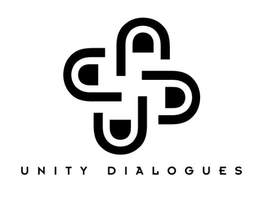Inclusion & Education
|
UNITY DIALOGUES™
Unity Dialogues™ are a series of conversations, driven by youth, directed by youth and led by youth where cultural understanding and breaking down of barriers are fostered. During the Unity Dialogues™ groups of youth from different backgrounds come together to discuss cultural differences, break down stereotypes, foster relationships, undo media influence and create action plans for bringing people together at all levels of society. Created as method for building community and opening a safe space for all to discuss issues of race and racism, Unity Dialogues is a platform where small groups come together to grow in trust and understanding of our differences. Through the process participants create trust and opportunity for revealing methods to use to build bridges in our world that break down white supremacy culture and institutionalized racism . Founded as a youth effort to bridge conversations and community, |
|
Restorative Justice Practices
Utilizing the indigenous practices and principles of circle process Restorative Justice Practices focuses on creating community within our classrooms and schools. As a method of breaking down barriers to communication and developing deep understanding Restorative Justice Practices reduce harm and increase equity for our students. Working with educators on developing and implementing circle with the ability to navigate challenging conversations about race is part of the development program. |
Restorative Justice as a System of Change
Implementing restorative conferencing within administration teams and equipping leadership and educators with the language skills to open communication allows us to focus on the "why" behind our students behaviors. Gina is lead facilitator and trainer of holistic restorative practices and processes for schools that cultivates a culture of belonging and inclusion. |
|
UNCONSCIOUS BIAS-WE ALL HAVE IT, NOW WHAT?
This series of workshops utilizes circle process for communication that allows participants to uncover for themselves where each of us holds bias. Armed with self awareness attendees are able to move forward in their work and personal lives and utilize a new understanding of themselves and the processes of racial equity to create change right where they are. |
Mindfulness and Cultivating Calm
Educators learn tools and techniques that can be taught to students so that they can utilize the tools to self-manage and self regulate emotions. Methods for creating calm in their classrooms and spaces that foster emotional well being and positive social interaction are demonstrated and practiced to replicate in the classroom.
The intended impact is that students are more effective at self regulation for their emotional and academic well being. By teaching educators the tools that can be used to foster well being the intended outcome is that the classroom environment becomes more positive and calm thereby producing better academic outcomes.
Educators learn tools and techniques that can be taught to students so that they can utilize the tools to self-manage and self regulate emotions. Methods for creating calm in their classrooms and spaces that foster emotional well being and positive social interaction are demonstrated and practiced to replicate in the classroom.
The intended impact is that students are more effective at self regulation for their emotional and academic well being. By teaching educators the tools that can be used to foster well being the intended outcome is that the classroom environment becomes more positive and calm thereby producing better academic outcomes.
|
Author Gina G. Harris is currently completing research for the completion of her second book, "How to Build Culturally Supportive Classrooms" which will be published in Fall of 2023. Current course offerings include aspects from the book relating to bias, institutionalized and structural racism, community building, restorative justice practices, developing antiracist curriculum and class culture and student cultural identity development and mindfulness. |



